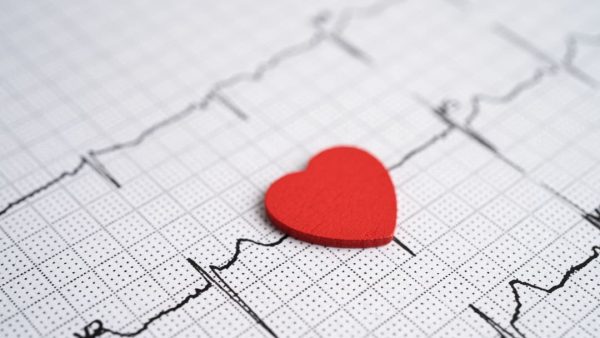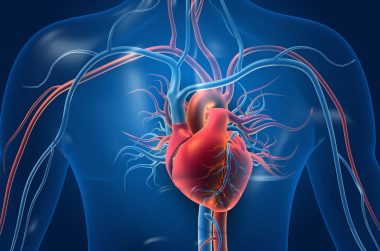Looking for Expert-Level VA Claim Answers?📱Call Us Now! 737-295-2226
Could your irregular heartbeat be tied to your military service?
If you’ve been diagnosed with atrial fibrillation (AFib), you might be eligible for VA disability compensation (especially if your condition stems from service-related trauma, environmental exposures like Agent Orange, or other service-connected health issues).
In this guide, we’ll break down how the VA rates AFib (10% or 30%), how to prove service connection (direct or secondary), and how AFib may be linked to PTSD, Agent Orange exposure, or other heart conditions.
Don’t miss out on benefits you’ve earned—let’s get into it.
Table of Contents
Summary of Key Points
- The VA rates atrial fibrillation (AFib) at 10% or 30% based on the frequency and severity of AFib episodes.
- Veterans may qualify for a VA rating above 30% if their AFib is a symptom of, or rated under, a broader service-connected cardiovascular condition, such as hypertensive heart disease or ischemic heart disease.
- To qualify for VA AFib disability benefits, veterans must establish a service connection by showing that their condition was caused or aggravated by a service-related event or injury.
- Atrial fibrillation is NOT currently a presumptive condition. Still, you may qualify for presumptive VA benefits if your AFib is secondary to a condition that the VA has deemed presumptive, such as ischemic heart disease caused by Agent Orange exposure.
What is Atrial Fibrillation?

Atrial fibrillation (Afib) is a common heart condition that causes abnormal heart rhythms in the heart’s upper chambers. These abnormal rhythms can impact the regularity, speed, or sequence of heartbeats.
The condition is VA-rated as a cardiac (i.e., heart) arrhythmia (i.e., irregular heartbeat). A person may be diagnosed with different types of arrhythmias, but AFib is the most common type of treated arrhythmia.
Episodes of atrial fibrillation may come and go, or they may be persistent. AFib isn’t usually considered severe. However, if AFib symptoms are continuous, it could progress to a life-threatening medical condition that requires proper treatment to prevent a heart attack or stroke.
AFib can be caused by certain types of heart disease, high blood pressure, diabetes, sleep apnea, or other causes. There’s also been a link between Afib and PTSD.
Symptoms
Common symptoms of AFib include:
- Extreme fatigue (the most common symptom)
- Heart palpitations (the sensation of your heart skipping a beat, fluttering, pounding, or beating too hard or fast)
- Trouble breathing (mainly when lying down or working out)
- Shortness of breath
- Chest pain
- Dizziness or fainting
AFib VA Ratings
AFib VA ratings are 10% or 30%, depending on how often you need medication, how many treatments you require, and other factors.
The VA rates AFib as a heart arrhythmia under 38 CFR § 4.104 Schedule of Ratings, Cardiovascular System – Diagnostic Code 7010 for a condition called “supraventricular tachycardia (i.e., rapid heart rate of the upper heart chamber).
30% AFib VA Rating
Confirmed by ECG (electrocardiogram), with five or more treatment interventions per year
10% AFib VA Rating
Confirmed by ECG (electrocardiogram), with one to four treatment interventions per year; or, confirmed by ECG with either continuous use of oral (i.e., by mouth) medications to control or use of vagal maneuvers to control
Note: A Holter monitor is often used to get an ECG (electrocardiogram) reading; this is a portable device worn by the patient to evaluate the heart during day-to-day activities.
A vagal maneuver is a technique that stimulates the vagus nerve; this maneuver is often used to slow the heart rate in people with AFib.
Proving Service Connection
To receive VA disability benefits for AFib, you must first establish service connection. There are different ways to show service connection on your disability claim, including:
Direct Service Connection
To establish direct service connection for AFib, you must satisfy the three elements of the Caluza triangle:
1. A Current Medical Diagnosis of AFib
2. Evidence of an In-Service Event, Injury, Disease, or Aggravation
3. Nexus (the link between #1 and #2) via Competent Medical Evidence (can be a valid nexus letter with a strong rationale or nexus statement)
Secondary Service Connection
A secondary service connection may be warranted if a primary service-related condition, such as ischemic heart disease, causes or aggravates your AFib.
Secondary conditions arise due to complications, worsening symptoms, or long-term effects of a previously rated disability. For example, if you have been rated for service-connected PTSD, and your PTSD symptoms cause your AFib to worsen, AFib could be rated secondary to your PTSD.
You could be eligible to receive additional VA disability compensation if you prove that your secondary condition (i.e., AFib) was caused or worsened by a primary service-connected disability.
AFib as a Secondary Condition
AFib commonly occurs secondary to conditions such as:
- Ischemic heart disease (DC 7005) – a cardiovascular (i.e., heart and blood vessels) disorder that limits the blood flow in the body; this lack of sufficient blood flow/oxygen can lead to atrial infarction (i.e., death of tissue), which can contribute to the development of AFib.
- Hypertension (High blood pressure DC 7101) – untreated high blood pressure can damage heart muscles, contributing to AFib and other arrhythmias.
- CAD (Coronary Artery Disease DC 7005) – a heart condition that can damage the heart’s electrical system, which could lead to AFib.
- PTSD (DC 9411) – new studies show that PTSD caused AFib in a large group of veterans.
- Myocardial infarction / Heart attack (DC 7006) – damage to the heart muscle caused by a heart attack can cause AFib because it disrupts the electrical signals that regulate the heartbeat; a heart attack is considered a potential cause of long-term AFib.
To establish a secondary service-connection, it’s essential to provide medical evidence such as a “Nexus Letter,” a medical opinion showing service-connection evidence, written by a qualified healthcare provider. VA medical records showing how the primary condition caused or aggravated the secondary condition also help to show service connection.
VA Rating for PTSD and AFib
A large 2018 nationwide study discovered a link between post-traumatic stress disorder (PTSD) and atrial fibrillation (AFib).
The study discovered that although AFib was historically linked with risk factors such as high blood pressure, obesity, and sleep apnea, new information has linked psychological stress and negative emotions, such as those from PTSD to AFib.
Interestingly, the 2018 study involved over 1 million post-9/11 veterans who had no history of AFib.
After the 5-year follow-up period, over 2,000 veterans without AFib risk factors (e.g., smoking, obesity, high blood pressure, or CAD) were diagnosed with AFib.
The study authors concluded: “These data suggest that PTSD is a potentially modifiable risk factor for AF,” said Lindsey Rosman, PhD, and Postdoctoral Research Fellow in Cardiovascular Medicine at the Yale School of Medicine. “Our results also raise the possibility that early detection and treatment of PTSD may reduce a patient’s risk for developing AFib.
AFib and PTSD: Secondary Service Connection
A secondary service connection can be filed if you are already service-connected for PTSD and later develop AFib.
Citing the above 2018 research study on veterans with PTSD who developed AFib may be helpful to the VA examiner in understanding the association between the two conditions.
AFib and Agent Orange
Although AFib isn’t on the PACT Act list of presumptive conditions due to Agent Orange exposure, you may still qualify if you can show your AFib was caused by a condition on the PACT Act list, such as ischemic heart disease.
Ischemic heart disease is considered a presumptive condition for veterans who were exposed to toxic chemicals such as Agent Orange in specific regions, including:
- Vietnam: From January 9, 1962, to May 7, 1975
- Thailand: From January 9, 1962, to June 30, 1976
- Laos: From December 1, 1965, to September 30, 1969
- Cambodia: From April 16, 1969, to April 30, 1969
- Guam or American Samoa: From January 9, 1962, to July 30, 1980
- Johnston Atoll: From January 1, 1972, to September 30, 1977
*Note: The PACT Act involves claims for veterans exposed to toxins from Agent Orange, burn pits, and other toxic sources.
Filing an AFib VA Claim
To file your VA claim, use the VA Form 21-526EZ form. Submit your form and attach your supporting evidence, including service records, medical reports, a Nexus Letter (if you have one), and other documentation.
You can file your claim in person at a local VA Regional Office, online, via the VA.gov website, or with the help of a Veteran Service Officer (VSO).
Conclusion
If you are a veteran with atrial fibrillation (AFib), you may be eligible for VA disability compensation. The VA rates AFib based on how often medication is needed, with AFib VA ratings at 10% or 30%. AFib has been shown to occur secondary to several other disorders, including high blood pressure, coronary artery disease, and ischemic heart disease.
While AFib is not a presumptive condition for Agent Orange exposure, you may still qualify if your condition is linked to another presumptive service-connected condition, such as ischemic heart disease (IHD).
Want Expert-Level Support for Your VA Disability Claim? WE GOT YOUR SIX!
How does VA Claims Insider help veterans?
We make the confusing and frustrating VA claim process EASY through our 8-step proprietary system and one-on-one coaching; we’re the VA Claim EXPERTS you can trust, and YOU are never alone in this fight against the VA!
You’ll also receive VA disability expert Brian Reese’s SEM Method Blueprint—a proven formula that has helped over 25,000 veterans win their VA disability claims faster:
Strategy + Education + Medical Evidence = VA Rating and Compensation You Deserve FASTER!
Start today and unlock an exceptional level of service you deserve for serving our country:
- You’ll hear from a VA Claim Expert over email within 15 minutes of signing up today.
- You’ll hear from your Veteran Coach team within 24 hours of all inquiries during normal business days/hours.
- Our terms are simple: IF WE DON’T WIN, YOU DON’T PAY. You have nothing to lose and everything to gain!
Click the red button below to start the process of winning your VA claim right now:
About VA Claims Insider

- VA Claims Insider is the #1 most-trusted name in VA disability claims.
- Work directly with a VA claims coach who can educate you to VA claim victory.
- 25,000+ disabled veterans have served in our membership programs since 2016.
- 30% average rating increase for veterans who complete our #1 rated Elite program.
- 4.7/5.0 average rating out of 5,500+ total reviews; over 4,500 5-star reviews.
FAQs
Can I get VA disability for AFib?
Yes, as a veteran, you can get disability compensation for AFib provided your symptoms meet the VA’s eligibility/rating table and you can show that your condition was either caused or worsened by your military service.
What is the highest VA rating for AFib?
The highest VA rating for atrial fibrillation (AFib) is 30%. Still, if the condition contributes to other heart conditions (e.g., a heart attack [myocardial infarction] or heart failure), you may qualify for a higher rating under a different diagnostic code (DC).
Can AFib be rated as a secondary condition?
Yes. If you have another service-connected condition that contributes to your AFib symptoms, such as PTSD, high blood pressure (hypertension), or ischemic heart disease, you can file a claim for AFib as a secondary condition to one of these contributing disorders.
Can I get VA disability for intermittent or occasional AFib episodes?
Yes. Even intermittent AFib can qualify for a 10% or 30% VA rating, depending on the number of required medical interventions and how the condition affects your daily life. Documentation of ECG-confirmed episodes is key.
Can I get service-connected for AFib if it wasn’t diagnosed during service?
Yes, you may still qualify if your AFib is linked to a service-connected condition (e.g., PTSD, heart disease), or if medical evidence shows that your military service contributed to or aggravated your AFib after discharge. This is known as a secondary or delayed onset connection.
About the Author

Sherry Christiansen
Sherry Christiansen is a professional Medical Writer with a clinical mental health background. Over the last decade, she has written health and wellness articles for organizations like Medical News Today, Verywell Health, and Healthline. In 2013, she also helped launch an educational website for the first Alzheimer’s prevention clinic in the country at Weill Cornell Medical Center – NewYork-Presbyterian. As a spouse of a career military service member, Sherry is deeply passionate about supporting veterans. It is an honor for her to assist veterans in receiving the benefits they deserve after becoming ill or injured while serving our country.



